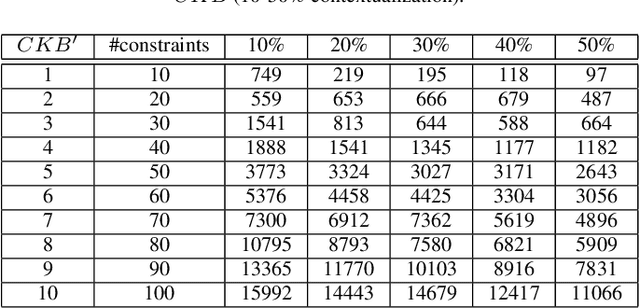Johannes Spoecklberger
Exploring Modality Guidance to Enhance VFM-based Feature Fusion for UDA in 3D Semantic Segmentation
Apr 19, 2025Abstract:Vision Foundation Models (VFMs) have become a de facto choice for many downstream vision tasks, like image classification, image segmentation, and object localization. However, they can also provide significant utility for downstream 3D tasks that can leverage the cross-modal information (e.g., from paired image data). In our work, we further explore the utility of VFMs for adapting from a labeled source to unlabeled target data for the task of LiDAR-based 3D semantic segmentation. Our method consumes paired 2D-3D (image and point cloud) data and relies on the robust (cross-domain) features from a VFM to train a 3D backbone on a mix of labeled source and unlabeled target data. At the heart of our method lies a fusion network that is guided by both the image and point cloud streams, with their relative contributions adjusted based on the target domain. We extensively compare our proposed methodology with different state-of-the-art methods in several settings and achieve strong performance gains. For example, achieving an average improvement of 6.5 mIoU (over all tasks), when compared with the previous state-of-the-art.
Consistency-based Merging of Variability Models
Feb 15, 2021



Abstract:Globally operating enterprises selling large and complex products and services often have to deal with situations where variability models are locally developed to take into account the requirements of local markets. For example, cars sold on the U.S. market are represented by variability models in some or many aspects different from European ones. In order to support global variability management processes, variability models and the underlying knowledge bases often need to be integrated. This is a challenging task since an integrated knowledge base should not produce results which are different from those produced by the individual knowledge bases. In this paper, we introduce an approach to variability model integration that is based on the concepts of contextual modeling and conflict detection. We present the underlying concepts and the results of a corresponding performance analysis.
 Add to Chrome
Add to Chrome Add to Firefox
Add to Firefox Add to Edge
Add to Edge